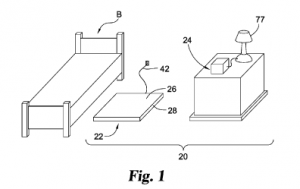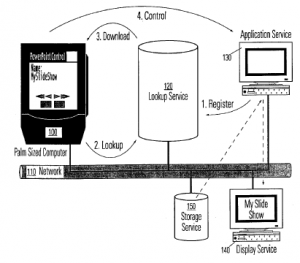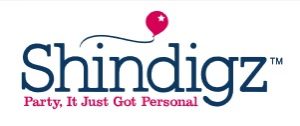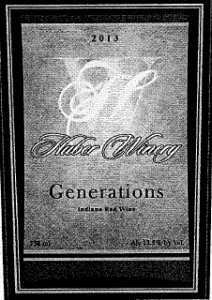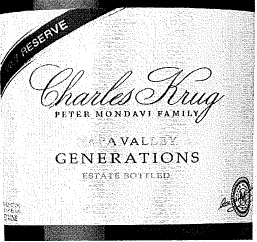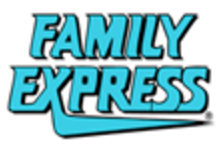Fort Wayne, Indiana – The Northern District of Indiana has denied Defendant’s motion to dismiss for improper venue, citing the connection of the Northern District to the events underlying the litigation.
This Indiana trademark litigation, Family Express Corp. v. Square Donuts, Inc., was filed to resolve a dispute over the use of the words “Square Donuts” in connection with the sale of donuts by two different Indiana-based companies.
Defendant Square Donuts of Terre Haute, Indiana claims trademark rights to “Square Donuts” under federal and Indiana law. It currently sells its “Square Donuts” in bakeries located in southern and central Indiana, including locations in Terre Haute, Indianapolis, Bloomington, and Richmond.
Plaintiff Family Express of Valparaiso, Indiana operates convenience stores in northern Indiana and uses the term “Square Donuts” in conjunction with doughnut sales. Plaintiff states that both it and Defendant are expanding their respective businesses into new markets, with Defendant expanding to the north while Plaintiff expands to the south. Thus, territory in which both operate concurrently has become a possibility.
In 2006, Defendant sent a cease-and-desist letter to Plaintiff. Plaintiff and Defendant subsequently discussed the possibility of entering into a co-existence arrangement, but did reach an agreement.
This trademark lawsuit followed. Plaintiff asks the Indiana federal court to declare that its use of the term does not infringe on the trademark rights in “Square Donuts” asserted by Defendant. Plaintiff also asks the court to cancel Defendant’s existing Indiana and federal “Square Donuts” trademarks.
Trademark litigators for Defendant asked the court to dismiss the lawsuit, claiming that it had been filed in an improper venue. In evaluating whether venue in the Northern District was permissible, the court first noted that, while it “must resolve all factual disputes and draw all reasonable inferences in the plaintiff’s favor,” Plaintiff then bears the burden of establishing that venue is proper. It also noted that venue can be proper in more than one district.
The federal venue statute, 28 U.S.C. § 1391(b), provides that venue can exist in “(1) a judicial district in which any defendant resides, if all defendants reside [in the same state]” or “(2) a judicial district in which a substantial part of the events or omissions giving rise to the claim occurred, or a substantial part of the property that is the subject of the action is situated.”
Plaintiff relied on subsection (b)(2), claiming that a substantial part of the events giving rise to the lawsuit took place in the Northern District of Indiana. To establish venue, Plaintiff pointed to the fact that Defendant’s cease-and-desist letter and other communications had been relayed to Plaintiff in the Northern District. At least some rulings by districts courts located within the Seventh Circuit have held that the requirements for venue “may be satisfied by a communication transmitted to or from the district in which the cause of action was filed, given a sufficient relationship between the communication and the cause of action.”
The Northern District of Indiana concluded that such communications, which would be a typical element of litigation under the Declaratory Judgment Act, would defeat the purpose of protecting a defendant from having to litigate “in the plaintiff’s home forum, without regard to the inconvenience to the defendant at having to defend an action in that forum or whether the defendant has engaged in substantial activities in that forum.”
Instead, the Indiana court considered the underlying substance of the dispute: “whether the Defendant’s Square Donuts trademark is valid and, if it is, whether the Plaintiff nevertheless has refrained from infringing on the trademark in connection with the sale of its Square Donuts.” The court concluded that, given the extent to which the claims and events at issue in the litigation took place in both the Northern and the Southern District of Indiana, venue was not improper in the Northern District of Indiana.
Practice Tip #1: If neither subsection (b)(1) nor (b)(2) of 28 U.S.C. § 1391 applies, a third subsection may be utilized. That subsection, 28 U.S.C. § 1391(b)(3), permits venue in “any judicial district in which any defendant is subject to the court’s personal jurisdiction with respect to such action.”
Practice Tip #2: An inquiry into proper venue for a lawsuit is different from one into personal jurisdiction. Personal jurisdiction “goes to the court’s power to exercise control over a party,” while venue is “primarily a matter of choosing a convenient forum.”
Continue reading
 Indianapolis, Indiana – Attorneys for Plaintiff, Eli Lilly and Company of Indianapolis, Indiana, filed suit in the Southern District of Indiana alleging that Defendants, Actavis LLC of Parsippany, New Jersey; Teva Pharmaceuticals USA of North Wales, Pennsylvania; and Teva Pharmaceutical Industries, Ltd. of Petach Tikva, Israel infringed its rights in United States Patent No. 7,772,209 (“the ’209 patent”) for “Antifolate Combination Therapies”. Plaintiff is seeking injunctive relief, declaratory judgment, and damages including costs and attorneys’ fees.
Indianapolis, Indiana – Attorneys for Plaintiff, Eli Lilly and Company of Indianapolis, Indiana, filed suit in the Southern District of Indiana alleging that Defendants, Actavis LLC of Parsippany, New Jersey; Teva Pharmaceuticals USA of North Wales, Pennsylvania; and Teva Pharmaceutical Industries, Ltd. of Petach Tikva, Israel infringed its rights in United States Patent No. 7,772,209 (“the ’209 patent”) for “Antifolate Combination Therapies”. Plaintiff is seeking injunctive relief, declaratory judgment, and damages including costs and attorneys’ fees. Indiana Intellectual Property Law News
Indiana Intellectual Property Law News


